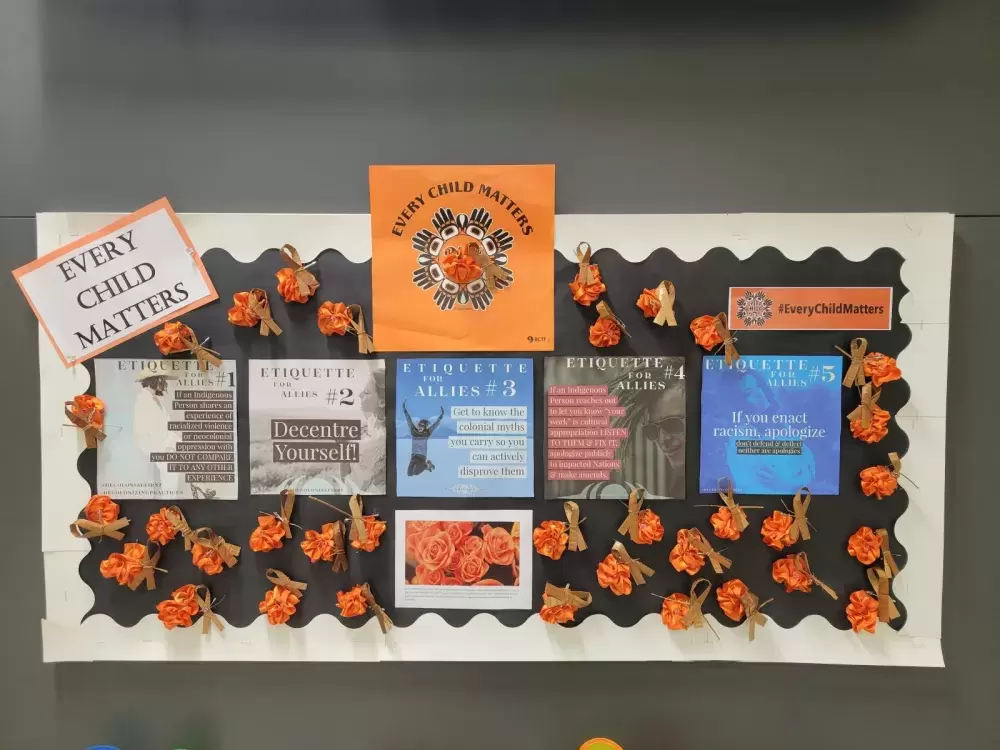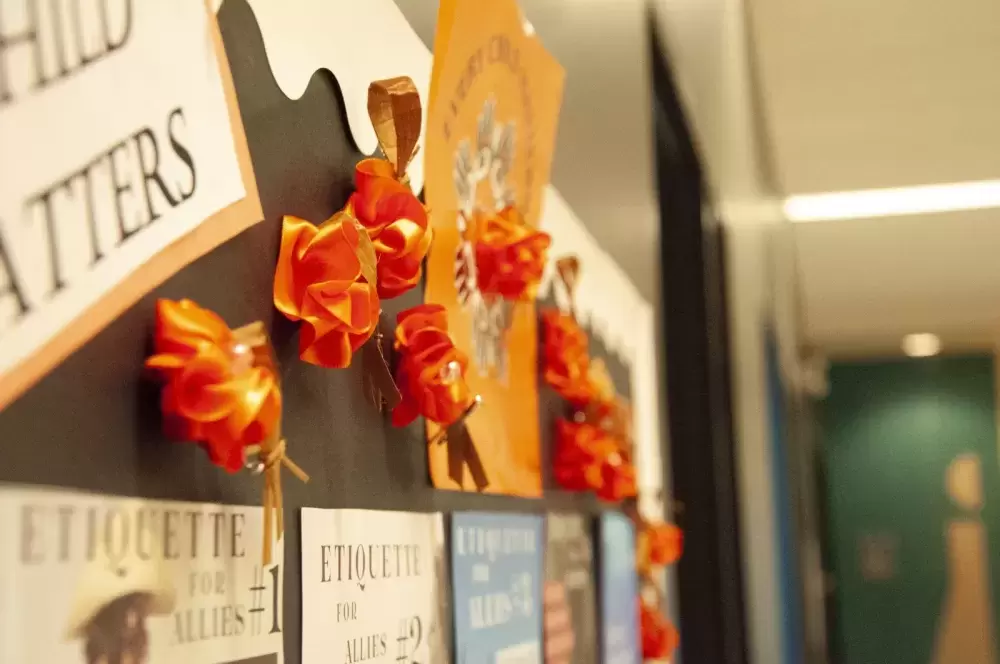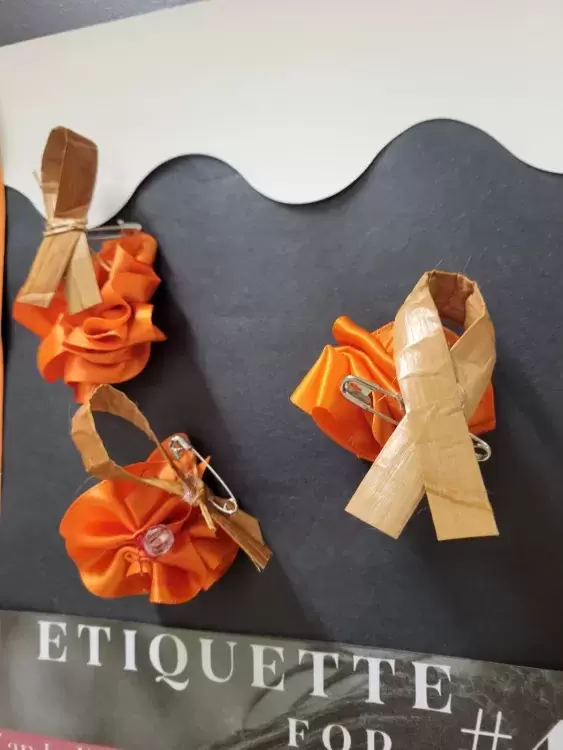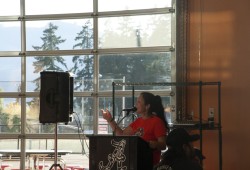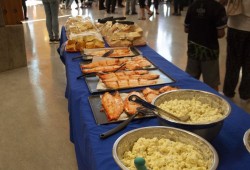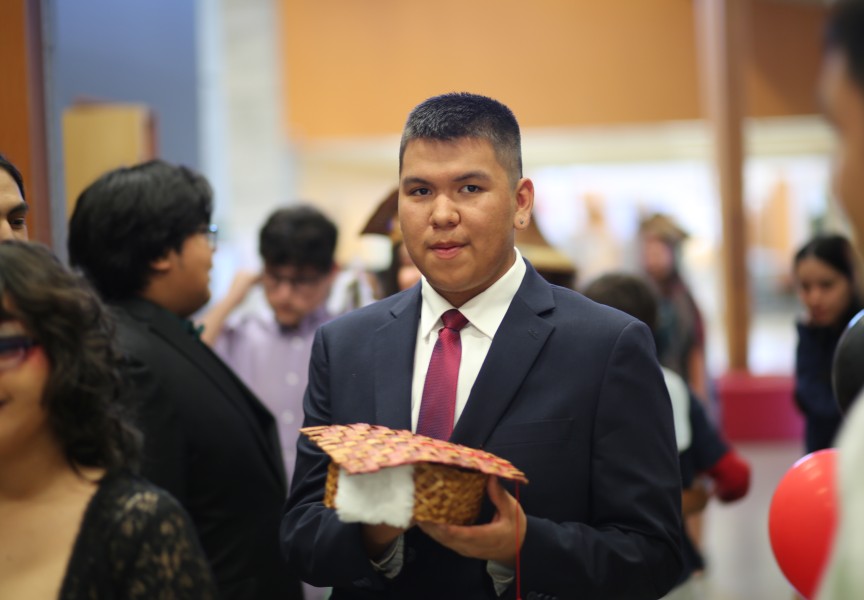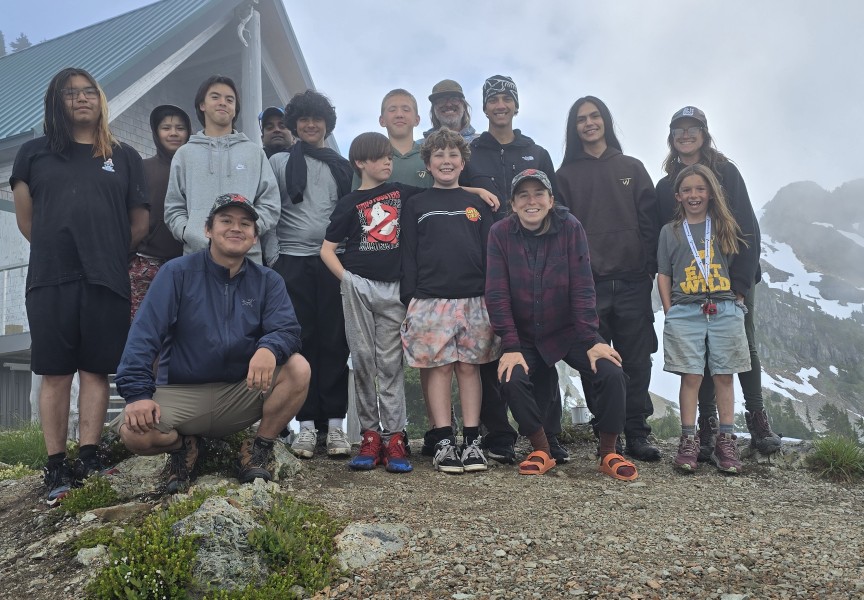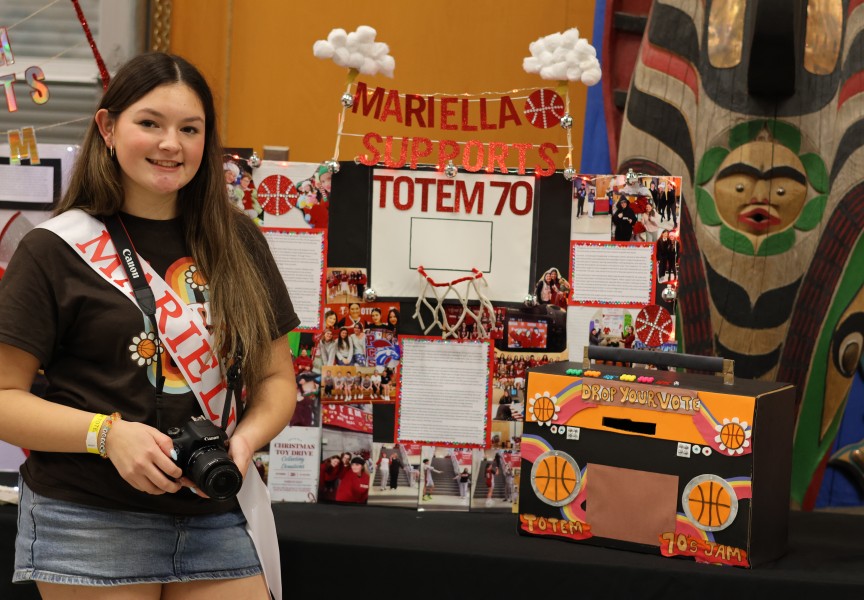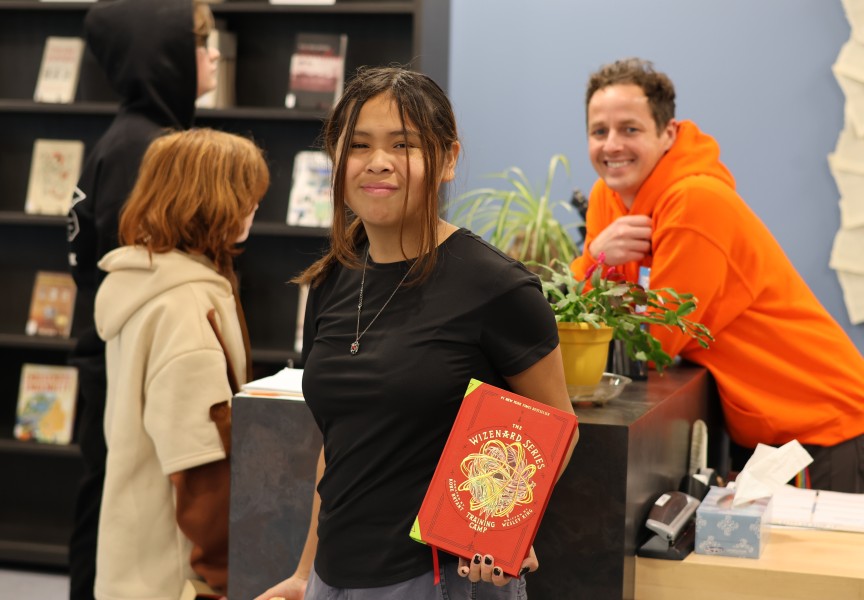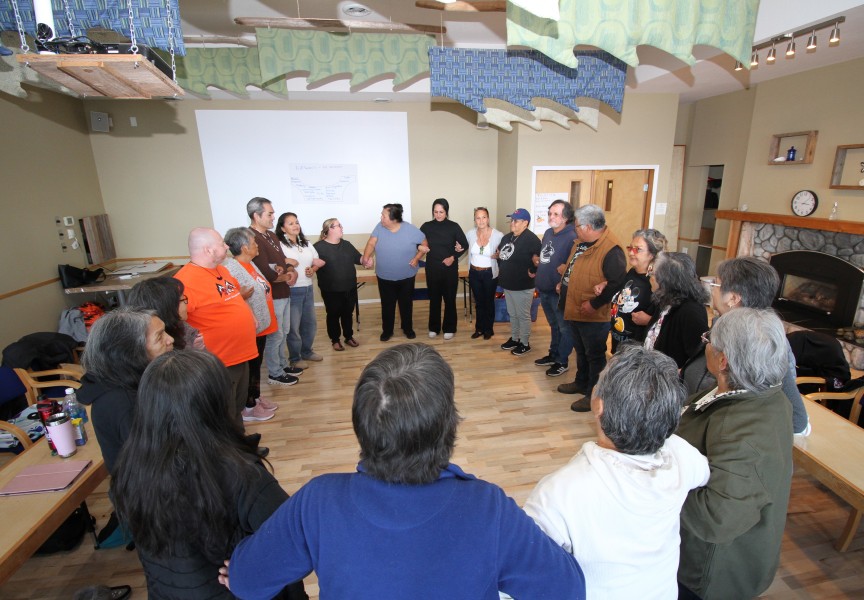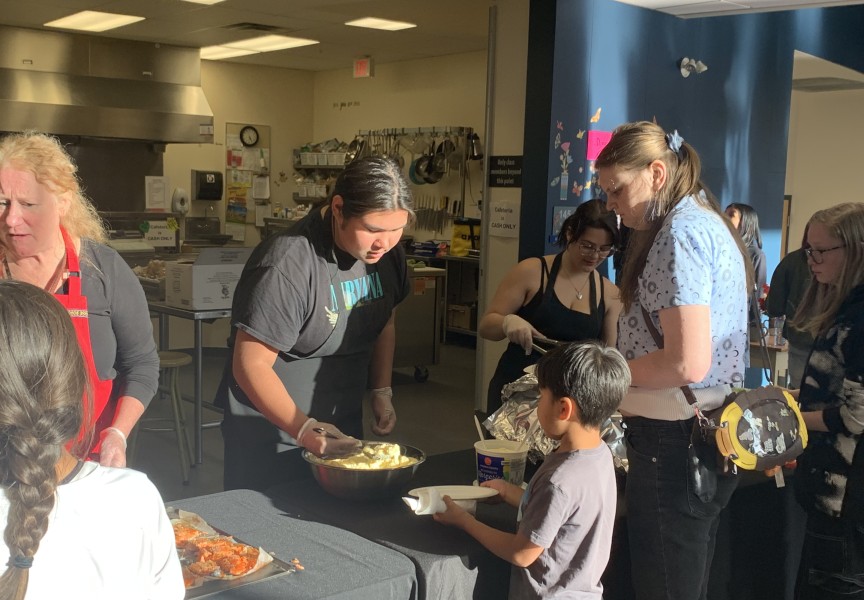Alberni District Secondary School (ADSS) is buzzing with excitement as students, parents, and teachers gather to welcome the newest additions to the school, grade eights.
Jackie Chambers, one of the student success teachers at ADSS, said the evening was an important way to connect students and families to the high school.
“We have a chance to show them that we're really happy that they would come and have some food with us,” said Chambers. “We get to meet parents with their children…that connection is then made, and that just makes for a positive start to the school year, you know, and their schooling career, actually.”
Chambers says that this event brings connection between home, community, and school.
This is the first time the Welcome Barbeque was hosted for the new Grade 8 students since 2019.
Jeannette Badovinac, vice principal of ADSS, said she is looking forward to help kids build their foundation so they can be successful in whatever they hope to do.
Badovinac said one of the major roles as vice principal is to support Indigenous programs.
“We've done a lot of work in the last couple of years to really increase our cultural awareness and the presence of culture in our schools so that our students see themselves reflected in our building when they come here,” said Badovinac.
Alberni District Secondary has worked to include a number of resources for Indigenous students, including three student success teachers, two mental health and wellness workers, and two Nuu-chah-nulth education workers. Newly added this year is an Indigenous support worker whose primary role is to connect with and re-engage students who have been disengaged in their schooling over the last year and a half of the COVID-19 pandemic, said Badovinac.
Shelley Frank, a Nuu-chah-nulth education worker at ADSS, said, “What I do is I bring culture, I bring knowledge - whatever I can to bring them back into their teachings.”
It was December of last year when Frank started as a Nuu-chah-nulth education worker, when COVID-19 precautions were still in place. A small group of students used construction paper for cedar bark weaving and to making canned salmon, among others. With this project, Frank and the students spoke about potlatch, traditional cedar weaving, and canning salmon.
“We try to reground them and show them their roots of their strengths,” said Frank.
Recently Frank and her students worked on a project to commemorate elders and loved ones that have passed on. Prompted by one of the students, the class wrote the names of loved ones that had passed onto ribbons and orange sewn flowers. One was left blank to commemorate individuals that were not mentioned.
Frank said students that are coming to ADSS are third and fourth generation residential school survivors.
“Truth and reconciliation is something that we're going to work on, not just this month,” said Frank. “The whole year, we're going to carry it out, and make sure that we're learning constantly about the truth of the dark history of Canada, to where we are now, to what we could do to change and reconcile in the future.”
“We just want Indigenous students to feel like this is their home, and then once they have that sense of belonging, to be able to build on that, and the success on teams and the success academically,” said Moira Barney, language teacher and co-chair for the Indigenous Leadership Team.
Badovinac said staff at ADSS are here to support students, encouraging students to come see them when they need help and support.
“The biggest thing I would say is we care so much about [our students]. And we do this job because we care [and] we want to help them really thrive and become the best version of themselves that they can,” said Badovinac.

